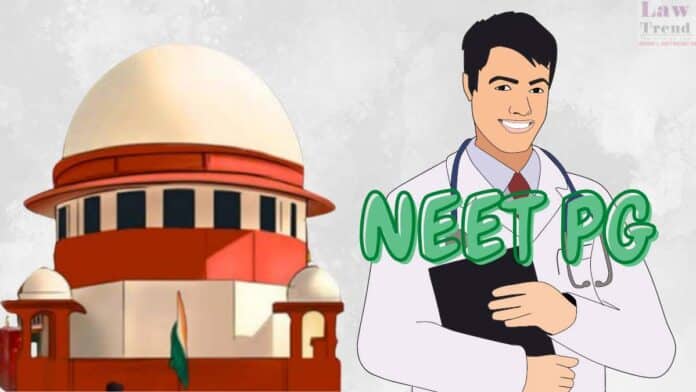The Supreme Court on Tuesday took action in response to a petition alleging anomalies in the third round of All India Quota (AIQ) counselling for the National Eligibility-cum-Entrance Test for Postgraduates (NEET-PG). The court issued notices to the Medical Counselling Committee (MCC), the National Medical Commission (NMC), and the Central government seeking explanations.
Justices BR Gavai and K Vinod Chandran, presiding over the case, are addressing claims that the third round of AIQ counselling experienced seat blocking incidents, impacting many prospective candidates. Particularly noted was the premature opening of seats in the AIQ before the conclusion of the second round of state-level counselling in some states like Madhya Pradesh, which allegedly allowed some candidates to block seats inappropriately.
The petitioners have expressed concerns over the scheduling conflicts between state and AIQ counselling rounds, which they argue have disadvantaged numerous candidates. They assert that some were forced to accept less preferred medical specialties due to these irregularities. Additionally, the plea accuses the MCC of not adhering to the Supreme Court-mandated timeline for seat allocation, referencing the precedent set by the case of Dr Ashish Ranjan and Others vs Union of India and Others.
In response to these alleged discrepancies, the petitioners are requesting the annulment of the third round of counselling and proposing either a re-conduct of the round or the addition of a fourth round to accommodate those affected by the claimed seat blocking. Another alternative suggested is a stray round of counselling for candidates who managed to secure seats in the disrupted third round.
The Supreme Court has scheduled the next hearing for February 7, where it will delve deeper into these allegations and explore possible remedies to ensure fairness and transparency in the medical admissions process.




